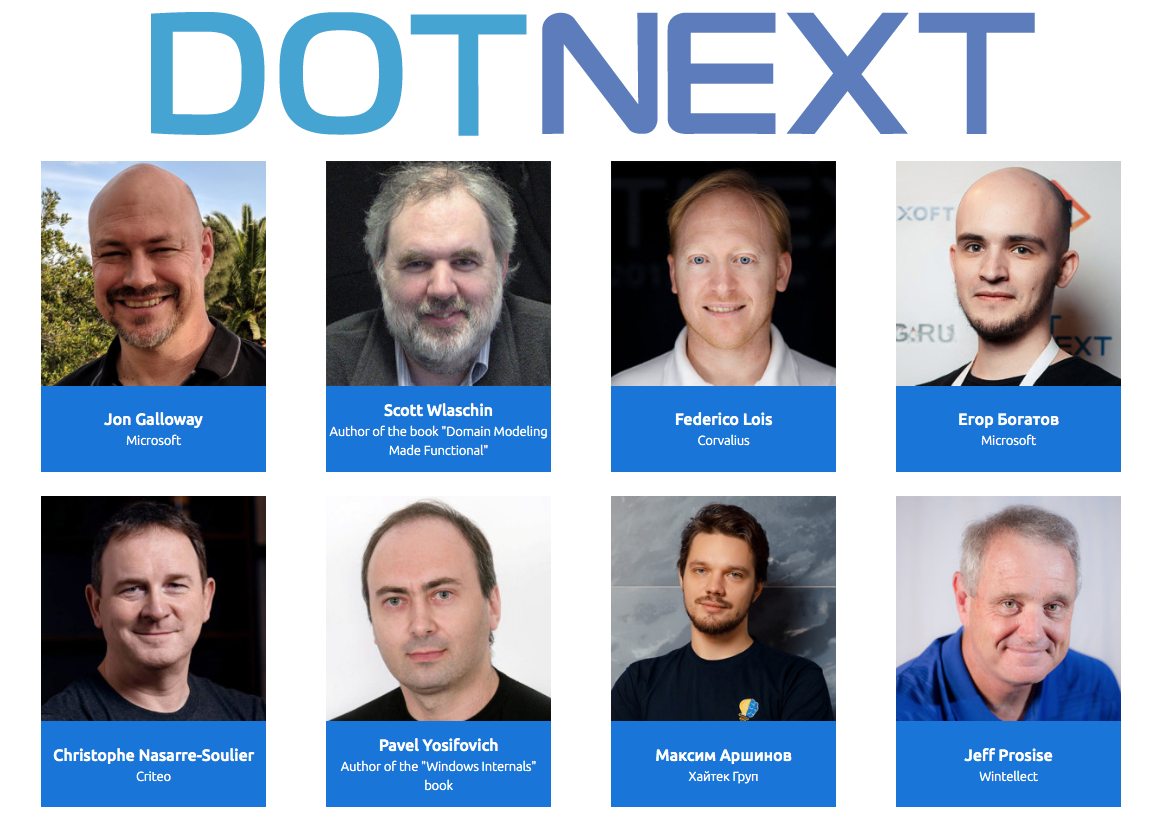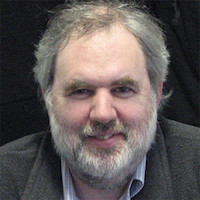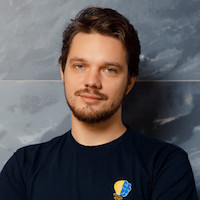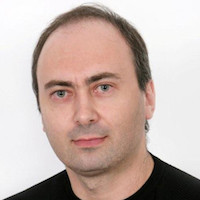
Sometimes you don’t understand whether you are interested in a new conference: you open a website, and then there are forty reports, and your eyes run wide. Well, do you have to carefully go through forty pages of descriptions? And if the site also has a “workshops” section, what do you need to know about them?
To help the residents of Habra, about the upcoming Moscow DotNext (November 6-7), we made a single text, dividing the reports into several blocks - this can be understood faster.
And at the same time, they referred to the video recordings of some past reports of the same speakers: you can understand in advance whether they are like speakers and learn something useful.
Blocks:
Workshops
First of all, let us pay attention to how this DotNext differs from the previous ones: in addition to the reports, there will also be two workshops (separate tickets are not required, this is part of the conference). That is, it will be possible, after spending two hours, to learn something not only theoretically, but also in practice. If you want to get involved, grab a laptop with you.
They will be led by speakers who, in addition to workshops, will make presentations:
Dmitry Soshnikov ( shwars ) is interested in both machine learning (to which his report is devoted) and functional programming. Therefore, his workshop will allow you to quickly get acquainted with both of these topics at once: he is called "F # Coding Dojo on Machine Learning".
And Maxim Arshinov ( marshinov ), who will give a lecture “The Shine and Poverty of the Subject Model,” also has the word “model” in the name of the workshop . It is called “From anemic model to rich in 5 steps” and will show on a concrete example how, with the help of refactoring, a CRUD-style application with easy hand movements turns into a DDD-style.
Keynotes
Many reports suggest diving deep into a narrow, specific topic. But in keynotes that open or close the day, it’s different: they are built on the principle of “sitting high - I look far away” and urge you to think about global things.
 For example, Cyril Skrygan , leader of the Rider team at JetBrains, will open the conference with a performance by Platform Wars. With his work, you inevitably see not only code, but also these very “platform wars”: how do large IT companies and their projects interact in the industry, and what does this mean for us?
For example, Cyril Skrygan , leader of the Rider team at JetBrains, will open the conference with a performance by Platform Wars. With his work, you inevitably see not only code, but also these very “platform wars”: how do large IT companies and their projects interact in the industry, and what does this mean for us?
Cyril has repeatedly performed at DotNext (with excellent audience reviews), and platform shifts are reflected in the topics of his previous reports. Back in 2015, his report was called “ReSharper vs. Roslyn ", and already there sounded" if we wrote our IDEshka ... ". And then they wrote the same IDE, and Cyril presented a still little-known project in his report “Rider: A New Cross-Platform .NET IDE from JetBrains”.
 And the conference will be closed by Scott Vlashin with the keynote “The power of composition” . It will be directly related to functional programming, but you will not need to be a skilled specialist in F #, this is a general report “for everyone”.
And the conference will be closed by Scott Vlashin with the keynote “The power of composition” . It will be directly related to functional programming, but you will not need to be a skilled specialist in F #, this is a general report “for everyone”.
Recently we interviewed Habr for Scott - from this text you can learn more about him. And if you want to see how he speaks (and at the same time just look into the functional world from an object-oriented one) - for the first acquaintance the recording of the report “F # for C # programmers” from the NDC Oslo conference is perfect.
 Since keynotes are dedicated to the “global”, they, unlike other reports, may not even be about development. On this DotNext there will be a well-known popularizer of science and a fighter with pseudoscience Alexander Panchin , who will compare the predictions of science fiction writers about biotechnology and what we actually see in practice.
Since keynotes are dedicated to the “global”, they, unlike other reports, may not even be about development. On this DotNext there will be a well-known popularizer of science and a fighter with pseudoscience Alexander Panchin , who will compare the predictions of science fiction writers about biotechnology and what we actually see in practice.
Alexander had not yet arrived at DotNext, but in the spring he had already spoken at our other conference with a different theme: “Game of God. Has science crossed the line? ” And since then the report got into the conference top 10 , it became clear: the developers really like his speeches.
Trends
There will be reports on technologies that are not yet ubiquitous in production, but are on the rise and are moving towards popularity. It is possible that now you do not need them yet, but it is already useful to know about them - when the time comes, you will be armed.

 For example, about ML.NET and machine learning, there will be two reports at once: Russian-language “Everything that the .NET developer wanted to know about deep learning, but was afraid to ask” by Dmitry Soshnikov and English-speaking “Machine learning for C # developers: Introducing ML.NET” by Jeff Prozaiz . And we also interviewed both of these speakers, you can compare: Prosease (about working with Jeffrey Richter at Wintellect and not only), Soshnikov (about introducing children to IT and not only).
For example, about ML.NET and machine learning, there will be two reports at once: Russian-language “Everything that the .NET developer wanted to know about deep learning, but was afraid to ask” by Dmitry Soshnikov and English-speaking “Machine learning for C # developers: Introducing ML.NET” by Jeff Prozaiz . And we also interviewed both of these speakers, you can compare: Prosease (about working with Jeffrey Richter at Wintellect and not only), Soshnikov (about introducing children to IT and not only).
Many DotNext viewers know Dmitry well. For example, he already covered the topic of ML in his report “Artificial Intelligence and Neural Networks for .NET Developers” (DotNext 2017 Moscow). With the advent of ML.NET, the content of that report became a little less relevant, but you can still evaluate speaker skills on it.
Releases C # 8.0 and .NET Core 3.0 took place about a month ago - that is, far from all managed to try them. For all those who have not had time, Raffaele Rialdi (president of DotNetLiguria and MVP in the Developer Security category) will help to do this.
He flew to us in the spring in St. Petersburg DotNext, you can see the recording of his report. The topic there is completely different (“Raspberry PI and .NET Core on Linux”), but you will understand whether English is suitable for you with an Italian accent.
Also, .NET Foundation Executive Director Jon Galloway will talk about the new features and features of .NET Core 3.0. Among those considered: support for desktop systems (WPF and Windows Forms), Blazor, a program in one executable file, language functions and much more.
John was also at the DotNext 2019 Piter in the spring, at that time he talked about open source - for a person from the .NET Foundation, the obvious question, of course.
You probably already met the word GraphQL. But although this technology did not appear yesterday, it continues to conquer new supporters with a quiet glanders - so it can be attributed to trends. The young fighter will be taught by ChilliCream co-founder Michael Staib , comparing GraphQL with REST and showing how to build the GraphQL API with Hot Chocolate on ASP.NET Core.
Three years ago, Docker was a big trend, and on DotNext this name also sounded. Now you won’t surprise anyone, but Kubernetes has also become an industry standard after him. How to transfer your existing solution to this world, using, among other things, the new features of Visual Studio 2019, a nine-time Microsoft MVP status holder in the ASP.NET category Marco De Sanctis will show .
The idea of visual programming is not new in itself, but is considered applicable only in a very small number of cases. Joreg and Elias Holzer from the vvvv project do not agree with this: they believe that a new era is approaching in which visual programming will be used much more widely than before, and the report will show in detail the capabilities of vvvv.
Theory
Now it’s not about new-fangled things whose names have been heard lately, but about more eternal issues - like architectural ones. In principle, Scott Vlashin’s keynote about composition fits this block as well. But what else will be in it:
 Maxim Arshinov, co-founder of the Kazan outsourcing company High Tech Group, a ten-year-old developer, will demonstrate the strengths and weaknesses of the subject model and the unobvious details of its implementation in the OOP paradigm and in a functional style.
Maxim Arshinov, co-founder of the Kazan outsourcing company High Tech Group, a ten-year-old developer, will demonstrate the strengths and weaknesses of the subject model and the unobvious details of its implementation in the OOP paradigm and in a functional style.
About Maxim as a speaker, I want to note this. His last year's report “Instant Design” turned out to be so in demand that we didn’t just collect likes on YouTube - we also made a text version for Habr, and it also attracted a lot of attention.
The head of the development team at Positive Technologies, Jacob Cook , will deal with event sourcing in detail and tell how it differs from other architectural approaches. It will also demonstrate how event sourcing can help solve the functional and non-functional requirements that are often presented to modern applications.
And Alexey Merson (aka m_a_d ) will tell you how to make a high-quality complex application on the .NET stack. Alex will use the ASP.NET Boilerplate Framework (ABP). In real time, Alexey will write a working web portal with a bunch of buns (audit logs, plugins, SignalR, localization, etc.) and briefly explain how these buns are implemented.
Practice
From discussions about how it is generally more correct for us to hammer nails, we turn to specific “hammers”.
 For example, there will be a report where (like in the Trends section) C # 8 is mentioned again, but not talking about the version as a whole, but in connection with one specific thing: nullable reference types. Andrey Dyatlov is engaged in supporting C # in ReSharper / Rider - so he knows the nuances of the language firsthand. And he will tell a lot: from how to gradually transfer the project to work with nullable reference types, to what pitfalls can suddenly be revealed at the same time.
For example, there will be a report where (like in the Trends section) C # 8 is mentioned again, but not talking about the version as a whole, but in connection with one specific thing: nullable reference types. Andrey Dyatlov is engaged in supporting C # in ReSharper / Rider - so he knows the nuances of the language firsthand. And he will tell a lot: from how to gradually transfer the project to work with nullable reference types, to what pitfalls can suddenly be revealed at the same time.
In spring, Andrei spoke at DotNext in St. Petersburg with a completely different report: “ Cross-procedure analysis of control flow ”.
The head of the development group at Acumatica, Vladimir Panchenko, will share the techniques and skills of static analysis at Roslyn. Vladimir will demonstrate how to create a new analyzer, how to test it, how to create code fix, how to make full integration into the development process.
Microsoft Azure Eran Stiller, co-founder of CodeValue Ltd., Microsoft Regional Director, MVP for Microsoft Azure, will talk about how to create your own PKI (in essence, your certificate issuing center) using .NET and Azure Key Vault, and also demonstrate how to build end-to-end system using it.
Yegor Grishechko from Insolar will talk about Jaeger - a system for collecting trace labels in distributed systems, written by Uber. Egor also plans to talk about the OpenCensus library and the OpenTracing initiative.
Nikolay Molchanov (recently working directly with us at the JUG Ru Group, and also known as the Flurl project maintainer) will reveal some secrets of implementing mutational analysis on .NET, show an analysis tool and demonstrate the most common mutations and real-life examples.
Raiffeisenbank affiliate Roman Prosin will introduce the audience to tools that help to manually code-code and teach how to automate this process. The report will be of interest to anyone who wants to master the art of reviewing.
Internals: profiling, optimization, debugging
The block in which they "enter the intestines." If you want not just to get a working application, but to understand "what is happening under the hood" and squeeze everything you can - here you are.
 Pavel Yosifovich in front of a bewildered audience will demonstrate how in just an hour you can write a simple but fully working cross-platform .NET Core profiler and run it on Windows and Linux.
Pavel Yosifovich in front of a bewildered audience will demonstrate how in just an hour you can write a simple but fully working cross-platform .NET Core profiler and run it on Windows and Linux.
Pavel is a co-author of the book “Windows Internals”, so he’s not accustomed to “crawl inside,” and this information is enough for someone to go to the report. But if you want to see how he speaks, you can watch last year's report “Windows 10 Internals for .NET developers”.
More about profiling: MVP Developer Technologies and Medium blog host Christophe Nasarre-Soulier show how easy it is to monitor applications using CLR Events using Linux for .NET Core as an example.
And CTO at Eagle Labs Dan Shechter will open the door to the world of high performance and show how to use the vectorization functions of modern processors (support of which appeared in .NET Core 3.0) for quite ordinary tasks.
Criteo developer Kevin Gosse will share his views on the debugging process. Indeed, in his opinion, debugging is all about thinking and methodology, and tools are a simple part. Kevin will demonstrate how these pieces work individually and how they work together.
Egor Bogatov, a developer at Microsoft from the Mono team, will demonstrate innovations in .NET 5, as well as consider in detail a new feature - replacing the CoreCLR runtime with Mono (LLVM) for any application and why it might be needed.
Microsoft MVP and Stephen Cleary, author of Concurrency in C # Cookbook, will put everything on asynchronous streams in JS and C # on the shelves . You will learn why async is important, how async / await has influenced modern languages. Stephen will also demonstrate the differences between new asynchronous threads and existing environments such as System.Reactive and RxJS.
Senior Technical Architect at Broadridge, Anatoly Zhmur, is convinced that talking about the GC takes too much time on its design and abstract tips, which, in fact, rarely help to improve anything other than abstract memory traffic metrics. He will try to consider this from the practical point of view of the engineer, from performance measurements to the concepts underlying garbage collection. There will be a little disruption of the covers and provocations.
Co-founder of the Dotnetos conference, Full Stack Cloud Developer at Sonova Łukasz Pyrzyk will show some .NET performance traps that many fall into because they are used to writing code quickly without thinking about what is going on inside .NET itself.
Co-founder of Corvalius and Codealike Federico Lois has already heard applause at DotNext: in 2017 he spoke with us with the theme “Patterns for high-performance C #”, in 2018 he examined the work with iron in “Scratched Metal”. And now it will demonstrate cutting-edge design principles for creating customizable, composable, and highly optimized code. The report is designed for engineers involved in microoptimization, and developers of high-performance computing libraries.
It seems that the affiliates surname "Peshkov" will soon be associated not with Maxim Gorky. Evgeny Peshkov ( epeshk ) has previously spoken on DotNext with the topic “Special exceptions in .NET” - and just look at the comments on the recording of this report on YouTube to notice how well it is received. Now he will speak again - this time with the theme “.NET: Dependency Treatment”.
Finally, Dan Shechter will figure out how developers can improve performance with CoreCLR 3.0 intrinsics.
In the end
We remind you that the conference is not only valuable reports. It is also an opportunity to properly ask their authors in discussion areas or chat with each other at a party.
So this text, although it reports a lot of valuable information, but not all. If this was not enough and you want to know something else, look for information on the site or ask in the comments.
And if it’s quite enough and decided to go - tickets can be purchased on the same site .
See you on November 6-7 in Moscow !